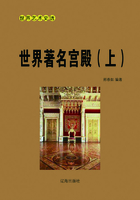Miss Rowly had received a bulky letter by the morning's post. She had not opened it, but had allowed it to rest beside her plate all breakfast-time. Then she had taken it away with her to her own sitting-room. Stephen did not appear to take any notice of it. She knew quite well that it was from some one in London whom her aunt had asked to pay Leonard's bills. She also knew that the old lady had some purpose in her reticence, so she waited. She was learning to be patient in these days. Miss Rowly did say anything about it that day, or the next, or the next. The third-morning, she received another letter which she had read in an enlightening manner. She began its perusal with set brow frowning, then she nodded her head and smiled. She put the letter back in its envelope and placed it in the little bag always carried. But she said nothing. Stephen wondered, but waited.
That night, when Stephen's maid had left her, there came a gentle tap at her door, and an instant after the door opened. The tap had been a warning, not a request; it had in a measure prepared Stephen, who was not surprised to see her Aunt in dressing-gown, though it was many a long day since she had visited her niece's room at night. She closed the door behind her, saying:
'There is something I want to talk to you about, dearest, and Ithought it would be better to do so when there could not be any possible interruption. And besides,' here there was a little break in her voice, 'I could hardly summon up my courage in the daylight.'
She stopped, and the stopping told its own story. In an instant Stephen's arm's were round her, all the protective instinct in her awake, at the distress of the woman she loved. The old lady took comfort from the warmth of the embrace, and held her tight whilst she went on:
'It is about these bills, my dear. Come and sit down and put a candle near me. I want you to read something.'
'Go on, Auntie dear,' she said gravely. The old lady, after a pause, spoke with a certain timidity:
'They are all paid; at least all that can be. Perhaps I had better read you the letter I have had from my solicitors:
'"Dear Madam,--In accordance with your instructions we have paid all the accounts mentioned in Schedule A (enclosed). We have placed for your convenience three columns: (1) the original amount of each account, (2) the amount of discount we were able to arrange, and (3)the amount paid. We regret that we have been unable to carry out your wishes with regard to the items enumerated in Schedule B(enclosed). We have, we assure you, done all in our power to find the gentlemen whose names and addresses are therein given. These were marked 'Debt of honour' in the list you handed to us. Not having been able to obtain any reply to our letters, we sent one of our clerks first to the addresses in London, and afterwards to Oxford. That clerk, who is well used to such inquiries, could not find trace of any of the gentlemen, or indeed of their existence. We have, therefore, come to the conclusion that, either there must be some error with regard to (a) names, (b) addresses, or (c) both; or that no such persons exist. As it would be very unlikely that such errors could occur in all the cases, we can only conclude that there have not been any such persons. If we may hazard an opinion: it is possible that, these debts being what young men call 'debts of honour,' the debtor, or possibly the creditors, may not have wished the names mentioned. In such case fictitious names and addresses may have been substituted for the real ones. If you should like any further inquiry instituted we would suggest that you ascertain the exact names and addresses from the debtor. Or should you prefer it we would see the gentleman on your behalf, on learning from you his name and address. We can keep, in the person of either one of the Firm or a Confidential Clerk as you might prefer, any appointment in such behalf you may care to make.
'"We have already sent to you the receipted account from each of the creditors as you directed, viz. 'Received from Miss Laetitia Rowly in full settlement to date of the account due by Mr. Leonard Everard the sum of,' etc. etc. And also, as you further directed, a duplicate receipt of the sum-total due in each case made out as 'Received in full settlement to date of account due by,' etc. etc. The duplicate receipt was pinned at the back of each account so as to be easily detachable.
"With regard to finance we have carried out your orders, etc."' She hurried on the reading. "These sums, together with the amounts of nine hundred pounds sterling, and seven hundred pounds sterling lodged to the account of Miss Stephen Norman in the Norcester branch of the Bank as repayment of moneys advanced to you as by your written instructions, have exhausted the sum, etc."' She folded up the letter with the schedules, laying the bundle of accounts on the table. Stephen paused; she felt it necessary to collect herself before speaking.
'Auntie dear, will you let me see that letter? Oh, my dear, dear Auntie, don't think I mistrust you that I ask it. I do because Ilove you, and because I want to love you more if it is possible to do so.' Miss Rowly handed her the letter. She rose from the arm of the chair and stood beside the table as though to get better light from the candle than she could get from where she had sat.
She read slowly and carefully to the end; then folded up the letter and handed it to her aunt. She came back to her seat on the edge of the chair, and putting her arms round her companion's neck looked her straight in the eyes. The elder woman grew embarrassed under the scrutiny; she coloured up and smiled in a deprecatory way as she said:
'Don't look at me like that, darling; and don't shake your head so.
It is all right! I told you I had my reasons, and you said you would trust me. I have only done what I thought best!'
'But, Auntie, you have paid away more than half your little fortune.
I know all the figures. Father and uncle told me everything. Why did you do it? Why did you do it?' The old woman held out her arms as she said:















